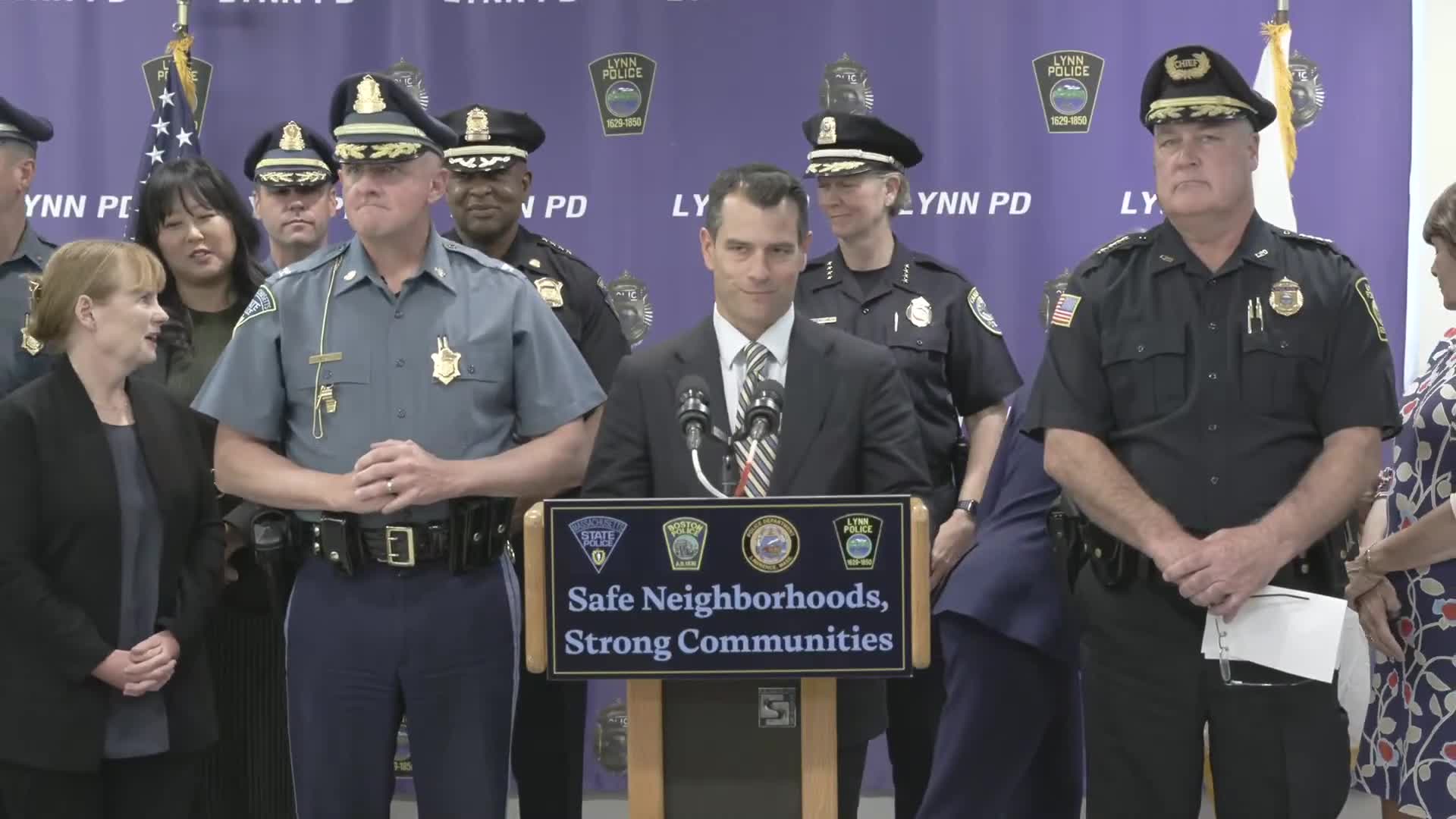Healey, law enforcement highlight Project Safe Neighborhoods results and urge continued tech, youth investments
Get AI-powered insights, summaries, and transcripts
Subscribe
Summary
Governor Maura Healey and regional law enforcement leaders met at the Lynn Police Department on Oct. 14, 2025, to review results from Project Safe Neighborhoods grants, including nearly 500 arrests and the seizure of firearms and narcotics, and to emphasize continued funding for technology and youth prevention programs.
Governor Maura Healey met with law enforcement and local leaders Tuesday at the Lynn Police Department to spotlight results from Project Safe Neighborhoods grants and press for continued investment in technology and youth-prevention programs to reduce crime.
The roundtable — the third of three public-safety convenings this year after meetings in Brockton and Holyoke — brought state police, municipal chiefs, district attorneys and nonprofit partners to discuss partnership-driven investigations and community prevention work that officials said has helped make neighborhoods safer.
"The importance of investing in public safety, investing in law enforcement, investing in the technology and the resources that help, investigate and hold people accountable, and the importance of investing in community prevention programs," Governor Maura Healey said, summarizing the administration's approach to public safety. Healey and other officials credited Project Safe Neighborhoods funding with recent enforcement results: nearly 500 arrests, 54 illegal guns removed, about 30 kilograms of narcotics seized and roughly $240,000 recovered in illicit proceeds, figures the governor cited from the program's first six months of the year.
Essex County District Attorney Paul Tucker recounted a spike in violence two years ago in Lynn as part of the rationale for the coordinated effort. "Two years ago last month ... 7 people being shot on Essex Street. 2 of those were fatalities," Tucker said, adding that state and local cooperation, plus grant-funded resources, helped investigators dismantle a gang and make multiple arrests.
Massachusetts State Police Colonel Jeff Noble said the administration's emphasis on partnerships supports both enforcement and community engagement. "Build strong partnerships, stay engaged with our community partners, and deliver services that make a difference," Noble said, noting programs that pair troopers with young people and trauma-informed responses for victims.
Lynn Police Chief Reddy said the grants have funded initiatives that target gang and gun activity while also supporting youth engagement programs that create "safe space and an opportunity for positive engagement." Chief Reddy credited collaboration among state police, the district attorney's office and local nonprofits for the progress in Lynn.
Speakers emphasized technology as a growing priority for investigations and accountability. Healey and other officials said cameras, monitoring equipment and modern forensic tools speed suspect identification and case development and argued those tools require sustained state and federal funding. "The use of technology ... helps us to more quickly solve a crime, identify a perpetrator," the governor said, and warned that recent federal funding cuts would hinder those efforts.
Participants also raised prevention and youth services as central to long-term public-safety strategy, citing mental-health impacts from the COVID-19 pandemic and a rise in young people involved in violent incidents. Officials urged continuing to fund local prevention programs alongside enforcement.
The convening did not produce formal votes or new directives recorded in the session. Officials framed the meeting as a progress review and a call to sustain budgetary and federal support for enforcement technology and community programs.
Officials said the Project Safe Neighborhoods-supported work in Lynn included joint state-local investigations that led to a major dismantling of a local gang earlier this year and numerous arrests. They described the effort as an example of coordination among state police, municipal departments, district attorneys and community organizations.
Looking ahead, Healey and partners said they will continue to press the legislature and federal partners for funding to support technology, investigator resources and prevention programs; they also encouraged recruitment into law enforcement careers to maintain staffing levels. No new legislation or formal policy changes were announced at the roundtable.
